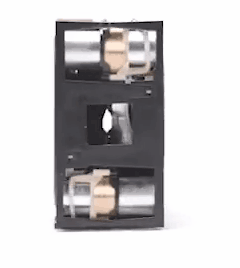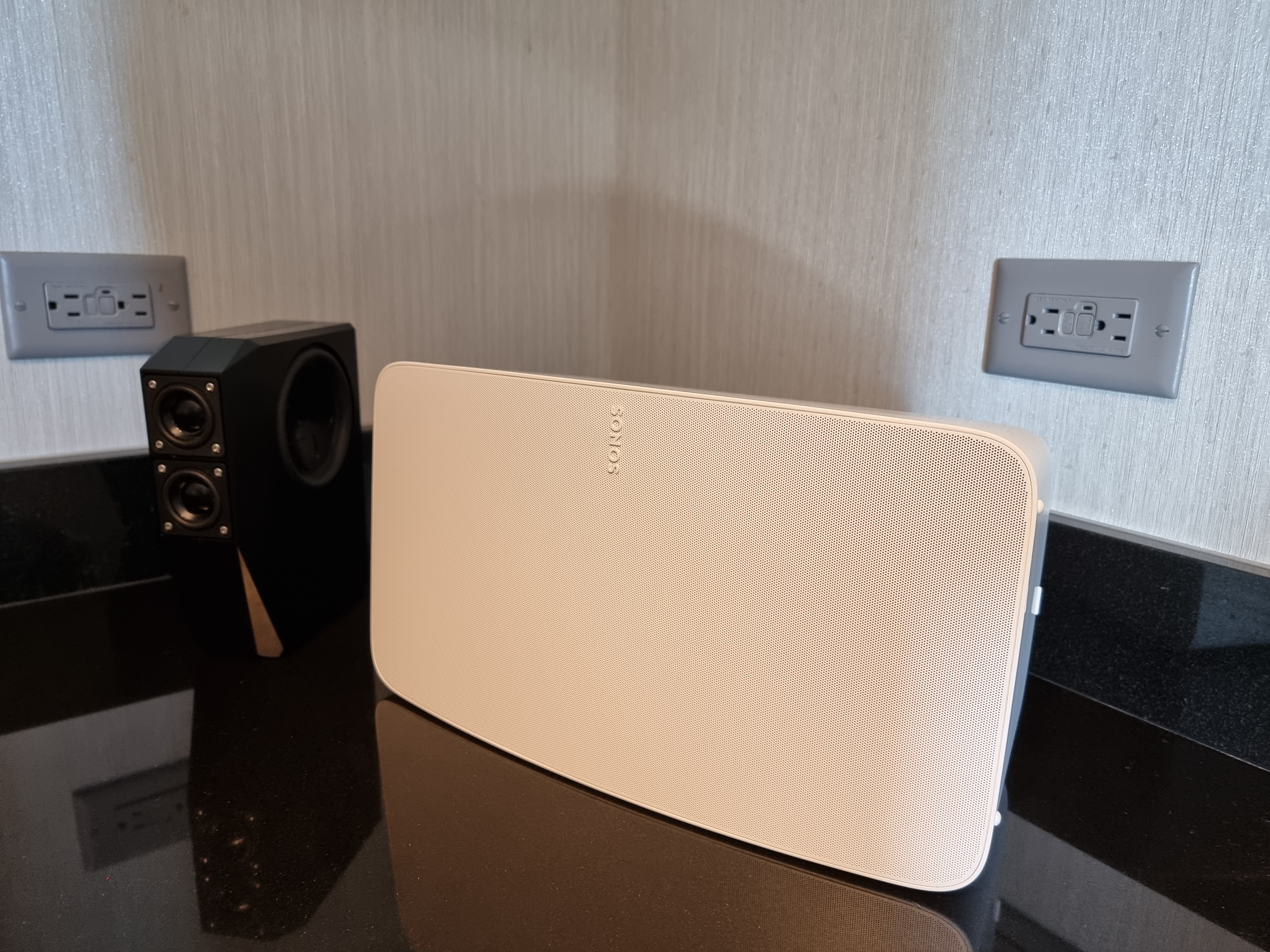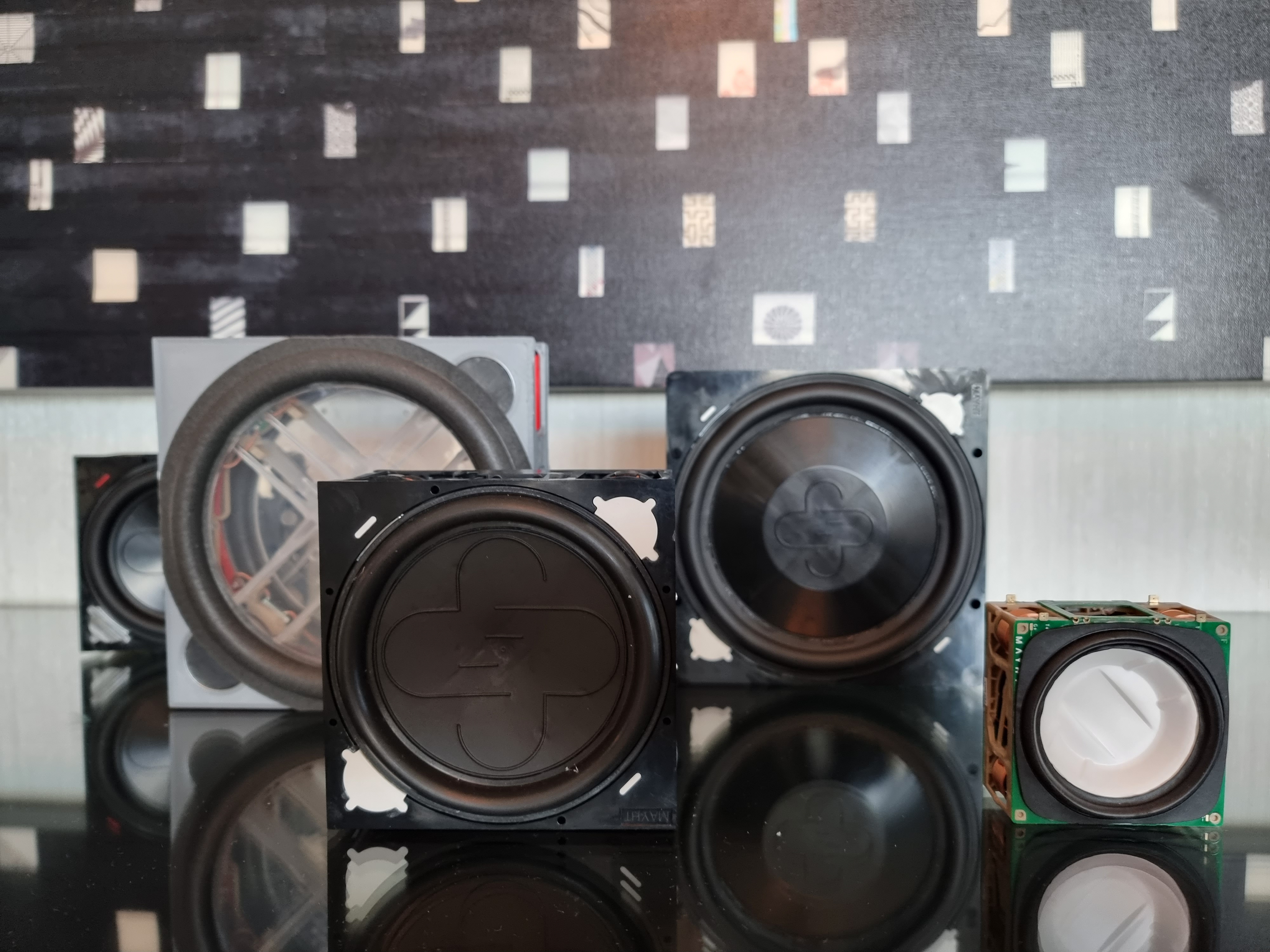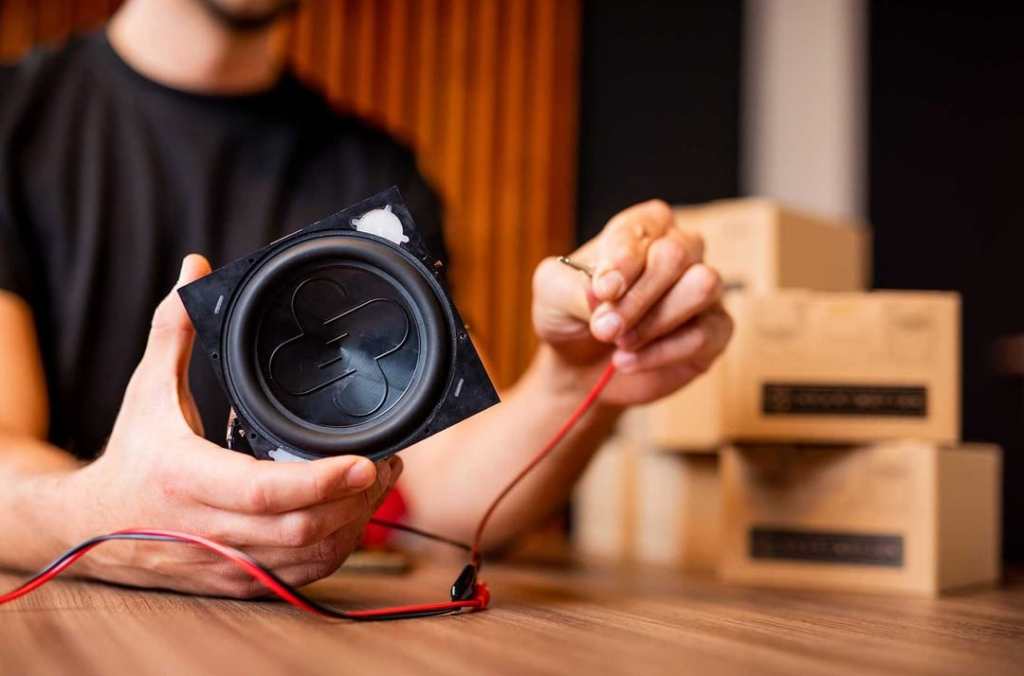There are many ways of spinning up a startup, but it takes a particularly brave set of founders to take on a deeply entrenched industry with a small number of incumbents who have the market all sown up. You’d have to be a special flavor of bold to take on internet search for example — where the name of the leading company is literally synonymous with searching for something on the internet. The world of speakers is similar; the technology has barely moved in the past hundred years, and only a handful of manufacturers create almost every single speaker element that plays the sweet dulcet tones of Shania Twain into the ether around you.
Plenty of startups think they can put a dent in this world, and every year, I see dozens of pitches for companies that are “making speakers better” in various ways. And every year, it falls flat. Yes, innovations are happening, but core speaker technology rarely moves in a way that could be described as truly innovative. At CES this year, I got to talking with the team of Mayht, which might just be the exception to that general rule.
The company has created speakers that are pointing in opposite directions of each other, with motors that move the speaker elements apart at the same time — creating a similar motion to you clapping your hands. That means that the speakers are perfectly balanced. The company claims the impact is more bang for the buck, and that the more-compact speakers can be more energy efficient in use, and smaller to ship and store. The speaker tech is interesting, but what really piqued my interest was how a small rag-tag bunch of innovators from the Netherlands is planning to shake things up.
Mayht is a technology company. Early on in its journey, it realized that in the world of speaker tech, there’s not much point in going head-to-head against the behemoths in the space. Armed with a handful of patents and some cool reference speakers (i.e. prototypes they can show off to potential partners), the company is hoping to build what is essentially an outsourced R&D arm. They are the skunkworks that creates new and interesting tech, before licencing it to the well-known speaker brands out there. I decided to take a closer look at the little Dutch startup, and how it is taking on one of the most well-entrenched industries in consumer electronics.
In this interview, I talk with the Mayht team and its investors to figure out what the special sauce is when you’re a scrappy David in a world of Goliaths.
“We’ve been working on this speaker technology since 2016. In the first couple of years we were just creating prototypes, but now we got a lot of stuff that is really close to mass production — or in mass production. We’re not a manufacturer of drivers, we just defend the technology and we license it,” explains Mattias Scheek, CEO at Mayht. “We can finally show our technology in different kinds of applications — from soundbars to small subwoofers to small voice-assistant speakers. We believe the latter, in particular, will really disrupt the market. If say, an Echo Dot can have the same sound as the Sonos One, or a soundbar. Or if a speaker without a subwoofer can have the same sound as something that does have one. It makes a big change in the market. We are finally able to show those things to the public.”
The company claims it has invented a new generation of speaker drivers. Whereas a typical speaker driver has a membrane, it can make limited movement, because the whole motor structure is behind the membrane. Mayht’s innovation is to put the motor structures at the sides of the membrane. That means more movement, and more displacement. You see a similar thing in automobile engines: A “bigger” engine can work in one of two ways — either you make each cylinder bigger, which means that more gas and air mixture can explode and create power. Or you make the stroke longer. Mayht is applying the same idea to speakers here. Speakers need to be smaller in a lot of different applications — the company suggests smart home speakers like the Google Mini and Alexa’s speakers, but also in vehicle tech, where space is at a premium. The company also claims that its speaker tech reduces rattle:

The company doesn’t have many kind words for the current generations of smart speakers — while adding voice controllability, mesh Wi-Fi, great design, power management and great user experience were all meaningful innovations, the speaker tech itself is pretty underwhelming.
“It’s exactly the same story for all the manufacturers — Bang & Olufsen, Bose, Sony. Every company uses the same technology and the same drivers because they essentially come from the same factories. There are three or four major manufacturers and all those different speaker brands take their drivers from those manufacturers. It’s not strange that there is no innovation in that field,” laments Scheek. “Because the manufacturers themselves don’t really develop drivers, they are not pushed to make higher-quality tech. They may move the needle by 1 or 2% but not to change the complete architecture of the driver. Doing so would mean changing their whole manufacturing setup, which is just a huge risk for those companies.”

“The speaker companies are not rewarded to really, truly innovate. From a cost perspective, they have to perform for the best quality with the lowest level of cost. And so there’s no incentive for speaker manufacturers to really think out of the box to bring out something really new and innovative,” explains Max van den Berg, Mayht’s chief commercial officer. “To put this into perspective, we’ve spoken to around 45 speaker companies globally since the start of this company. None of them have seen anything like this before — this is truly disruptive innovation.”
The company raised a total of €4 million in its most recent round, led by Forward One; I caught up with the partner who spearheaded the investment, to figure out why it felt confident to put its money behind a company that from the outside seems like it is facing an uphill battle.
“I think the team makes Mayht special. The two founding brothers have been working with speakers since they were seven years old really impressed me,” said Frederik Gerner, partner at Forward One, a Netherlands-based venture capital firm that is investing in hardware startups. “Their story on how they want to disrupt the speaker industry just makes so much sense! It’s a massive and still-growing market that has been operating for decades on the same technology, and it’s ready for disruption. Hardware is a real means to create a step-change in many industries, and we see the need for high-tech hardware innovation as more achievable and more important than ever.”
Building out a factory to out-manufacture the existing speaker element manufacturers would be a fools’ errand — one that the company is cleverly side-stepping by taking a licencing approach instead, building a very lean, engineering-focused team, and raising relatively small amounts of money. Mayht currently has 20 employees, 70% or so of whom are on the engineering side. The company also made the shrewd move of stacking its advisory board with strategically powerful folks who can add a tremendous amount of leverage, and may just be the key to building this type of company going forward.
“We have some very experienced people in our advisory board who are really active in the team. There are two people who formerly worked at Philips in the licensing department. One of them actually led the licensing department and made that side of Philips a huge business. He’s really helping us with the licensing structure, but also with how you handle [patent] litigation. He’s also an incredible deal-maker,” explains Scheek.

The company highlights the importance of building a company that fits well with the type of startup you are building. For example, Mayht also added Piet Coelewij, who was the managing director and VP of Global Operations for Sonos for five years, to its advisory board. It also highlights the company’s chief commercial officer, Max van den Berg, who was the marketing manager for personal audio for Sony in the mid 1990s, and continued in senior executive positions within Sony for several decades after that. “Having the right people in the room really helps open doors,” Scheek mentions in what might be the understatement of the year.
The company created a brand that it’s hoping to use to co-brand with other companies; a shrewd move that solves a significant branding problem. Most people don’t know who made the speaker elements inside their speakers — and why would they care. But there are predicates in other industries; unless you’re a very special kind of nerd, most people don’t care who made the processors inside their computers — not until Intel decided to pick up the fight and create the “Intel inside” campaign when AMD started nipping at its heels. Mayht is taking a sheet from the same playbook, and trademarked the Heartmotion brand. It hopes that it can convince its licensees to co-brand their speakers. “Sonos powered by Heartmotion” — that sort of thing.
“Yeah, so our technology brand for licensing would be Heartmotion. We called it that because the speaker looks like a pumping heart,” says Scheek. “Our goal is to have that on every product, and that our partners that use our technology will use it as part of the marketing on the box of the product.”
By minimizing the size and weight of the speaker tech, the company has a couple of clever talking points at its disposal. For car and RV makers, it means that they can cram more sound into smaller spaces — such as door panels and dashboards — without compromising on sound output. Those are obvious, but I was particularly impressed by how Mayht is tapping into a number of marketing messages that work particularly well in the current climate, where (finally!) people are starting to show some interest in greener tech. Packaging smaller speakers that have big performance and low energy consumption has a number of perhaps unexpected impacts. One example is the company’s prototype speaker that is clad in Powerfoyle light-harvesting tech, which means it’s possible to create a Bluetooth speaker that just keeps on going. Energy consumption aside, smaller form factors mean less weight and less shipping volume, which has a ton of second-hand environmental benefits.

Between Mayht’s licencing-first business model backed by a patent portfolio strategy, a great founder story, an advisory board staffed with a who’s-who of licensing and audio experts, and the willingness to move slow enough to get things right the first time around, the company is slowly positioning itself for an interesting 2022. The team hopes it is well resourced as it’s gearing up for a year of execution after many years of research and setting the stage.
“This is the year of getting our products into consumers’ hands, and I am excited to see that happen. We’ve been working on it while staying under the radar for quite some time. It’s been really strange — the industry knows that this is amazing, but the consumer hasn’t experienced it yet. For us, this is the year of the big reveal. In addition to working with our partners to get this to the consumer, we are going to do something ourselves…” Sheek trails off, itching to tell me the details, but remembering the recorder is running. “We’re going to announce it quite soon — in Q2 of this year. I can’t tell you much, but we are working on a reference product that the consumer can buy directly from us. We want consumers to experience this, so we are making a limited edition speaker for people to try.”
The company told me it isn’t really planning to make much money on its own product; this is really a mass-produced sample to help build brand awareness.
“We are building a product with the [3-inch] T3 driver ourselves because the whole industry is really starting to move once you prove yourself. We made a lot of prototypes over the past years,” explains van den Berg. The problem is that it takes a bit of time to design a new product, and the big speaker brands take their time in doing so. To really hit the ground running, the company is taking a risk and taking matters into its own hands. “We feel [third-party designed speakers] are a bit of a longer process; they need time to make decisions. Most likely, their products will be on the market by the end of 2022 or in early 2023. In the meantime, we think it’s very important that we announce this technology to the consumers. We don’t want to be a competitor of anybody out there, but we think what we are doing is cool, and we are excited to release a limited edition product; a beautiful Bluetooth speaker powered by Heartmotion.”































Comment